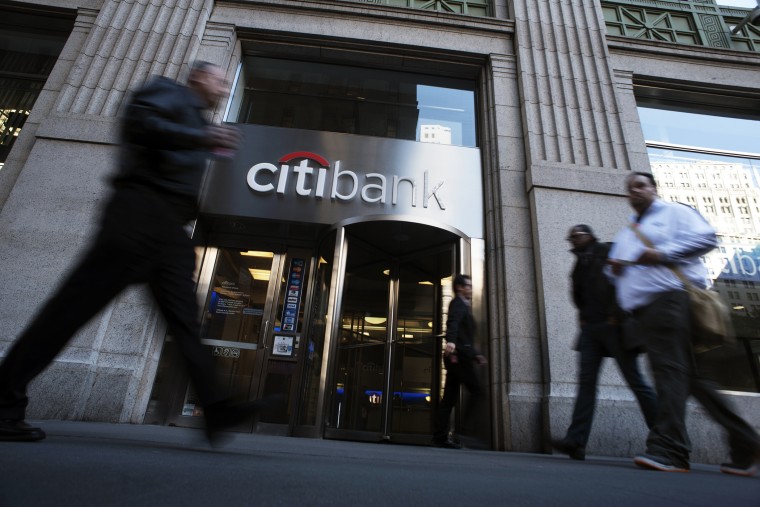Citigroup has agreed to pay $7 billion to settle with the Justice Department over accusations of misdeeds in the lead-up to the financial crisis, including what Attorney General Eric Holder is calling "the largest penalty to date of its kind."
The settlement includes $4 billion in civil penalties, $2.5 billion in aid to consumers, and $500 million in restitution to the FDIC and five states that bought faulty mortgage-bond securities from the banking giant.
"The bank's misconduct was egregious. And under the terms of this settlement, the bank has admitted to its misdeeds in great detail," Holder said on Monday morning. The $4 billion penalty is the largest to date under the Financial Institutions Reform, Recovery and Enforcement Act of 1989, which the government has increasingly used to prosecute financial fraud.
Holder added that the settlement did not rule out the possibility of future criminal prosecution.
The federal government accused Citigroup of knowingly hiding the extensive problems it had discovered with the mortgages it was securitizing, contributing to the collapse of the financial system. Originally, Citigroup had proposed to pay $363 million in cash, pointing out that it did not play a major role in the mortgage-backed securities market, according to The Wall Street Journal. But the Justice Department uncovered evidence that the firm deliberately concealed misdeeds and demanded far higher restitution.
In one internal email, officials said, a Citigroup trader said he “went through the Diligence Reports and think[s] [they] should start praying ... [he] would not be surprised if half of these loans went down ... It’s amazing that some of these loans were closed at all."
The Citigroup settlement is the latest attempt by the Obama administration to hold big financial institutions accountable for their role in the financial crisis. Last fall, JPMorgan Chase agreed to a $13 billion settlement for committing similar misdeeds and unloading toxic mortgages onto other stakeholders.
The settlement is expected to affect ongoing negotiations between Justice officials and Bank of America, as well as private civil suits that have been filed against Citigroup.
Chris Mayer, a housing expert and Columbia Business School professor, believes the enforcement actions are late in coming. "These legal cases should have been settled a long time ago, as the pending litigation and fears of uncertain rules has long inhibited new mortgage market activity and lending," he said. "Certainly any money paid now is late given that there have been five million foreclosures that have taken place during the crisis."
There may have been risks in acting too much earlier, however. "They were probably afraid they would shake up the financial markets while they were quite fragile," says Robert Hockett, a Cornell Law professor.
And while foreclosures have ebbed, millions of Americans could still benefit from mortgage housing assistance. As of the end of 2013, nearly 10 million Americans own homes that are underwater, holding a loan balance that's higher than the free-market value of their property. "There is still a huge negative equity problem out there," says Hockett.
The "consumer relief" part of the Citigroup settlement will include loan modifications and principal reductions to homeowners facing foreclosure, as well as low-interest rate refinancing, housing counseling, and construction of affordable rental housing.
"We know these measures won't cure every ill or solve every problem created by the financial crisis; but they are significant steps toward rectifying the harm caused by what the president called 'an era of recklessness' in our financial markets," said associate Attorney General Tony West.
